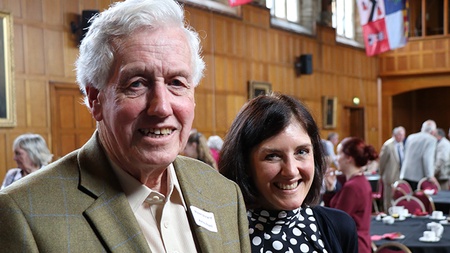The University of Aberdeen welcomed scores of octogenarians to a party in Elphinstone Hall this week (August 24) to celebrate the birthday of the 1936 Birth Cohort.
Everyone involved in the 1936 research group was invited to the birthday party to thank them for their invaluable participation in research studies over the last 80 years.
As part of the Birth Cohorts survey, the University has followed all of the children born in Aberdeen in 1921, 1936, and 1950-1956 as they grow and age. In primary school these children sat tests of reading and mental ability and researchers have linked the results from these tests to health and social information.
Scotland is the only country in the world to have tested an entire age group in its mental abilities, thus providing a unique opportunity to track the effects of ageing, allowing researchers to compare intelligence in childhood and later life, looking at how the brain ages and the factors affecting this.
The data has been used to answer questions like: Does being born very small affect mental health later in life? Is the risk of dementia related to childhood intelligence? What influences quality of life in old-age?
Robert Annand, a pupil at Ashley Road primary school in the 1940’s, is a member of the 1936 Birth Cohort and attended the event with his wife. Robert who turned 80 last week said: “I believe the Birth Cohort is a tremendous resource and I am proud to be a part of it. We have seen how Alzheimer’s can affect families and I am proud to be part of the effort to stop it.
Professor Alison Murray, Roland Sutton Chair of Radiology at the University of Aberdeen, said: "We are hugely grateful to Birth Cohort including their friends and relatives who have supported them while they contribute time, thinking abilities, blood samples, health data and brains to this research both in the past or more recently. Studies such as this are crucial to understand the normal brain as we get older and how we can prevent or lessen the impact of dementia.
The Aberdeen Birth Cohorts are a jewel in the crown of Scottish health research and they have helped to advance our understanding of aging well. We are incredibly lucky to have them."


